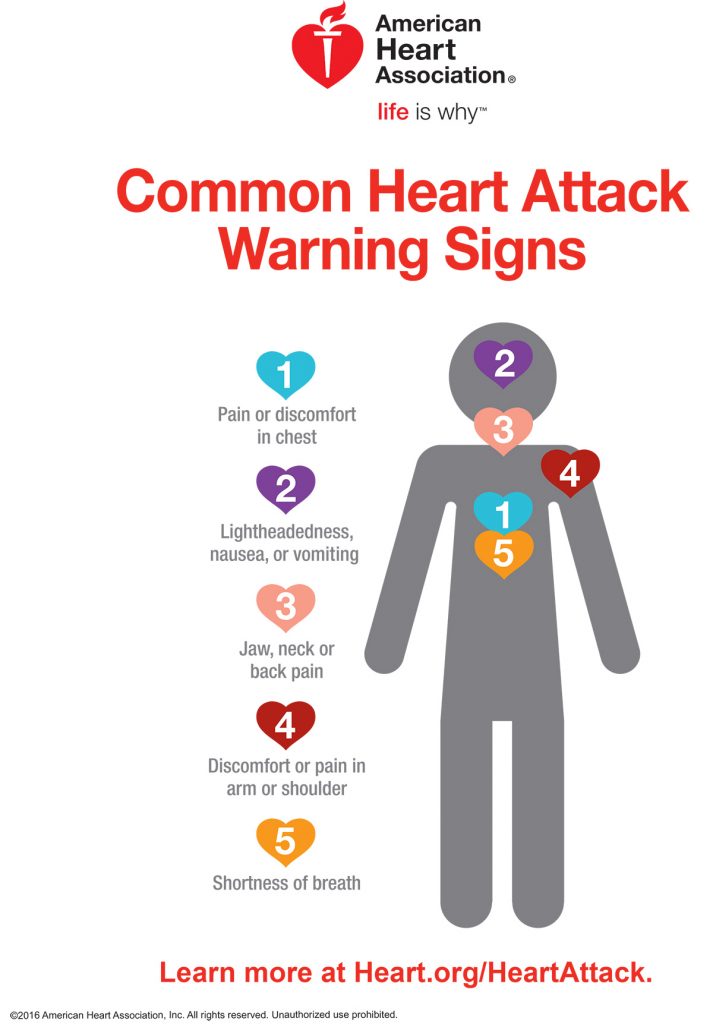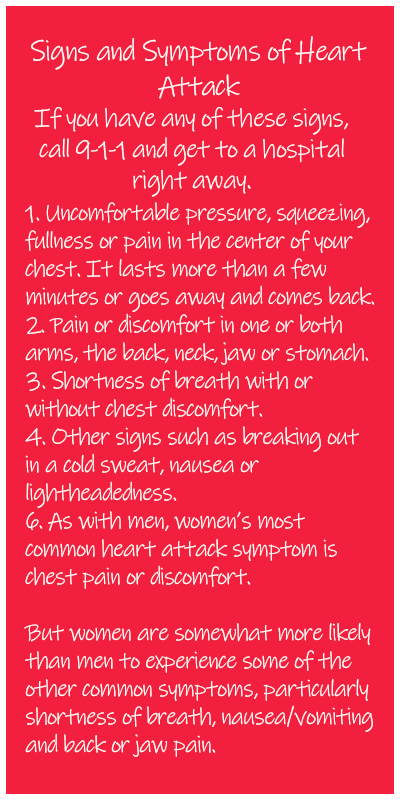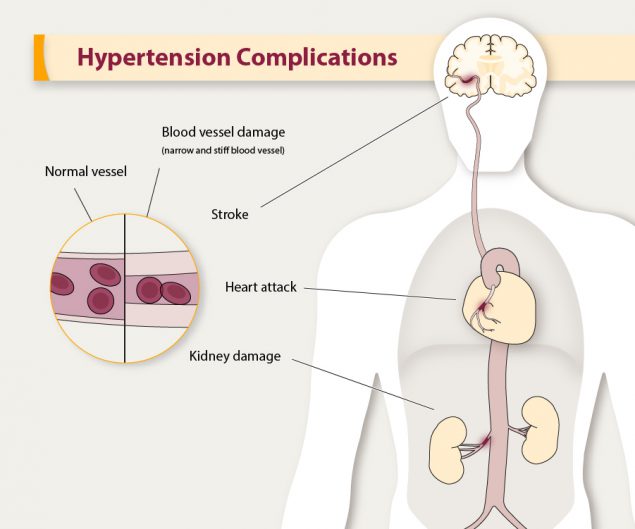Continuing with our theme of heart health, here are 4 symptoms of a heart attack. If these are present, call 9-1-1.
- CHEST DISCOMFORT-Most heart attacks involve discomfort in the center of the chest that lasts more than a few minutes, or that goes away and comes back. It can feel like uncomfortable pressure, squeezing, fullness or pain.
- DISCOMFORT IN OTHER AREAS OF THE UPPER BODY-Symptoms can include pain or discomfort in one or both arms, the back, neck, jaw or stomach.
- SHORTNESS OF BREATH-with or without chest discomfort.
- OTHER SIGNS-may include breaking out in a cold sweat, nausea or lightheadedness.

A couple of ways to ensure a healthy heart: eat right and exercise. That sounds really basic, but it is also really true. And again, if you experience symptoms of a heart attack, calling 9-1-1 is the best way to get help.



